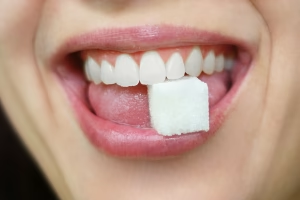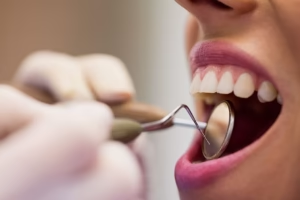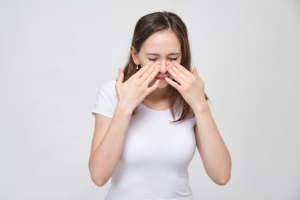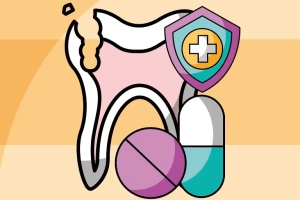How Can Menopause Affect Your Oral Health?
28 July 2022 | Updated: 16 December 2025

Menopause brings a wide range of changes to the body, most commonly linked to falling oestrogen levels. While symptoms such as hot flushes, mood changes, and sleep disruption are well known, menopause can also affect oral health in ways many women do not expect.
Changes in hormones during perimenopause and menopause can influence saliva production, gum health, and even how your teeth feel day to day. Some women notice increased sensitivity, dry mouth, or a persistent burning sensation that seems to appear without a clear cause. Understanding that these symptoms may be hormonally driven is an important first step toward managing them effectively.
Because of these changes, regular dental check-ups during menopause become especially important. Early detection and tailored care can help prevent minor issues from developing into more serious oral health problems.
In this article, we explain how menopause can affect your oral health, outline the most common symptoms to watch for, and share practical ways to protect your teeth and gums during this stage of life.
The Connection Between Menopause and Oral Health
Hormonal fluctuations affect oral health throughout life, including during puberty, pregnancy, and menopause. Oestrogen plays a key role in maintaining healthy gums, saliva production, and bone density. As oestrogen levels decline during menopause, the tissues in the mouth can become more vulnerable to inflammation, infection, and discomfort.
This means that menopause and oral health are closely linked, and changes in your mouth during this stage of life should not be ignored or dismissed as unrelated.
Common Oral Symptoms During Menopause

Menopause can cause several changes in the mouth. Not every woman will experience all of these symptoms, but the most common include:
Gum Inflammation
Hormonal changes during menopause can contribute to hormonal gingivitis. Symptoms may include swollen, tender, or bleeding gums. If left untreated, this inflammation can progress to gum recession and, in more severe cases, tooth loss.
Dry Mouth (Xerostomia)
Saliva production is influenced by hormones. Lower oestrogen levels can reduce saliva flow, leading to dry mouth. This increases the risk of tooth decay, gum infections, mouth ulcers, and ongoing irritation, as saliva plays an important role in controlling bacteria in the mouth.
Burning Mouth Syndrome
A persistent burning or tingling sensation affecting the tongue, lips, or cheeks is known as burning mouth syndrome (BMS). This condition can occur without visible signs and is more common during postmenopause.
Teeth Sensitivity
As hormonal changes affect the protective layers of teeth and gums, some women notice increased sensitivity to hot or cold foods and drinks. This happens when nerves become more exposed, leading to discomfort or sharp pain.
Changes in Taste
Menopause can also alter taste perception. Foods that were once enjoyable may taste bitter, metallic, or unpleasant. Some women report a lingering bad taste in the mouth, which is a recognised menopausal symptom.
What Can You Do to Protect Your Oral Health?
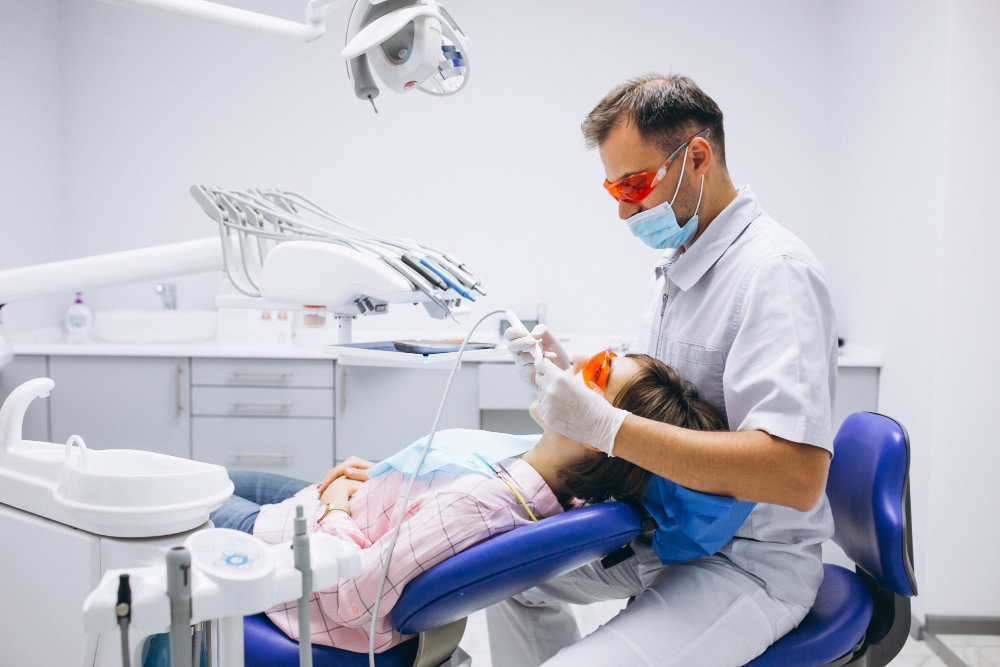
Managing oral symptoms during menopause starts with preventive dental care and consistent daily habits. Seeing your dentist regularly allows early identification of gum disease, tooth wear, and dryness-related issues.
Helpful steps include:
-
Brushing twice daily with a fluoride toothpaste
-
Flossing daily to reduce plaque build-up
-
Rinsing after brushing to support gum health
-
Drinking plenty of water to help relieve dry mouth
-
Reducing alcohol, sugar, and very spicy foods, which can worsen irritation
Your dentist may also recommend specific treatments or products to help manage dry mouth, sensitivity, or gum inflammation.
Why Regular Dental Check-Ups Matter More During Menopause
During menopause, changes in hormone levels can cause oral health issues to develop gradually and without obvious warning signs. Gum inflammation, dry mouth, and early tooth wear may not always be painful at first, but they can progress if left untreated. Regular dental check-ups allow your dentist to monitor subtle changes in your gums, saliva production, and tooth structure, helping to identify issues early and tailor care to your needs during menopause.
Can Hormone Therapy Help Oral Symptoms?
Hormone Replacement Therapy (HRT) may help reduce some menopausal symptoms, including those affecting oral health. Some studies suggest that women receiving HRT may have a lower risk of gum infections.
However, HRT is not suitable for everyone and can carry certain risks. Any decision to begin hormone therapy should be made in consultation with your GP or specialist, with your dentist informed so oral health can be monitored appropriately.
Menopause-Related Oral Care at MGA Dental
At MGA Dental clinic, we recognise that hormonal changes during perimenopause and menopause can have a real impact on oral health. Our team offers personalised, preventative dental care designed to address issues such as dry mouth, gum inflammation, tooth sensitivity, and ongoing oral discomfort.
If you’ve noticed changes in your oral health during menopause, contact our team at MGA Dental in Brisbane or the Gold Coast to book a consultation. We’re here to support your dental health and comfort at every stage of life.




